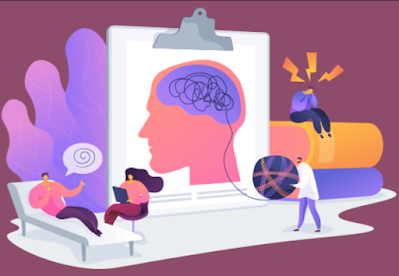Cognitive Therapy: An Effective Way to Treat Mental Health Disorders
What is Cognitive Therapy?
Cognitive therapy is a form of talk therapy that aims to change negative patterns of thinking and behavior. It is based on the premise that our thoughts, emotions, and behaviors are interconnected, and that by changing our thoughts, we can change our emotions and behaviors. Cognitive therapy is used to treat a wide range of mental health disorders such as anxiety, depression, post-traumatic stress disorder (PTSD), and obsessive-compulsive disorder (OCD).
How Does Cognitive Therapy Work?
Cognitive therapy is typically conducted in one-on-one sessions with a licensed therapist. The therapist will work with the patient to identify negative patterns of thinking and behavior, and then teach them new, healthier ways to think and behave. This may involve challenging negative thoughts, learning relaxation techniques, and setting achievable goals. The ultimate goal of cognitive therapy is to help patients develop more positive thought patterns and coping skills, which can improve their overall quality of life.
What are the Benefits of Cognitive Therapy?
Cognitive therapy has been shown to be an effective treatment for a wide range of mental health disorders. It is a relatively short-term treatment, typically lasting between 12 and 20 sessions. Cognitive therapy is also non-invasive and does not involve medication, making it a good option for those who prefer a more natural approach to treatment. Additionally, cognitive therapy can help patients develop lifelong coping skills that can be applied to other areas of their lives.
The Cognitive Therapy Process: Step by Step
If you are considering cognitive therapy, here is what you can expect:
- Assessment: The therapist will conduct an initial assessment to evaluate your symptoms and determine if cognitive therapy is the best course of treatment.
- Goal setting: The therapist will work with you to set achievable goals for treatment.
- Identifying negative thoughts: The therapist will help you identify negative patterns of thinking and behavior that may be contributing to your symptoms.
- Challenging negative thoughts: The therapist will teach you techniques to challenge negative thoughts and replace them with more positive ones.
- Learning coping skills: The therapist will teach you relaxation techniques and other coping skills to help manage your symptoms.
- Monitoring progress: The therapist will monitor your progress and make adjustments to treatment as needed.
What are the Potential Drawbacks of Cognitive Therapy?
While cognitive therapy has many benefits, it may not be the best treatment option for everyone. Cognitive therapy requires a certain level of commitment and may not be effective for those who are not willing to actively participate in the therapy process. Additionally, cognitive therapy may not be effective for those with severe mental health disorders or those who require medication to manage their symptoms.
Conclusion
Cognitive therapy is a highly effective way to treat mental health disorders. By changing negative patterns of thinking and behavior, cognitive therapy can help individuals develop more positive coping skills and improve their overall quality of life. While cognitive therapy may not be the best treatment option for everyone, it is a viable and non-invasive option that can help many people overcome their mental health challenges.
FAQs
1. Is cognitive therapy covered by insurance?
Yes, cognitive therapy is typically covered by insurance. However, it is important to check with your insurance provider to determine your specific coverage.
2. How long does cognitive therapy take?
Cognitive therapy typically lasts between 12 and 20 sessions, depending on the individual’s needs and progress.
3. Can cognitive therapy be done online?
Yes, cognitive therapy can be done online through virtual therapy sessions.
4. What is the success rate of cognitive therapy?
The success rate of cognitive therapy varies depending on the individual and their specific mental health disorder. However, cognitive therapy has been shown to be an effective treatment for a wide range of mental health disorders.

